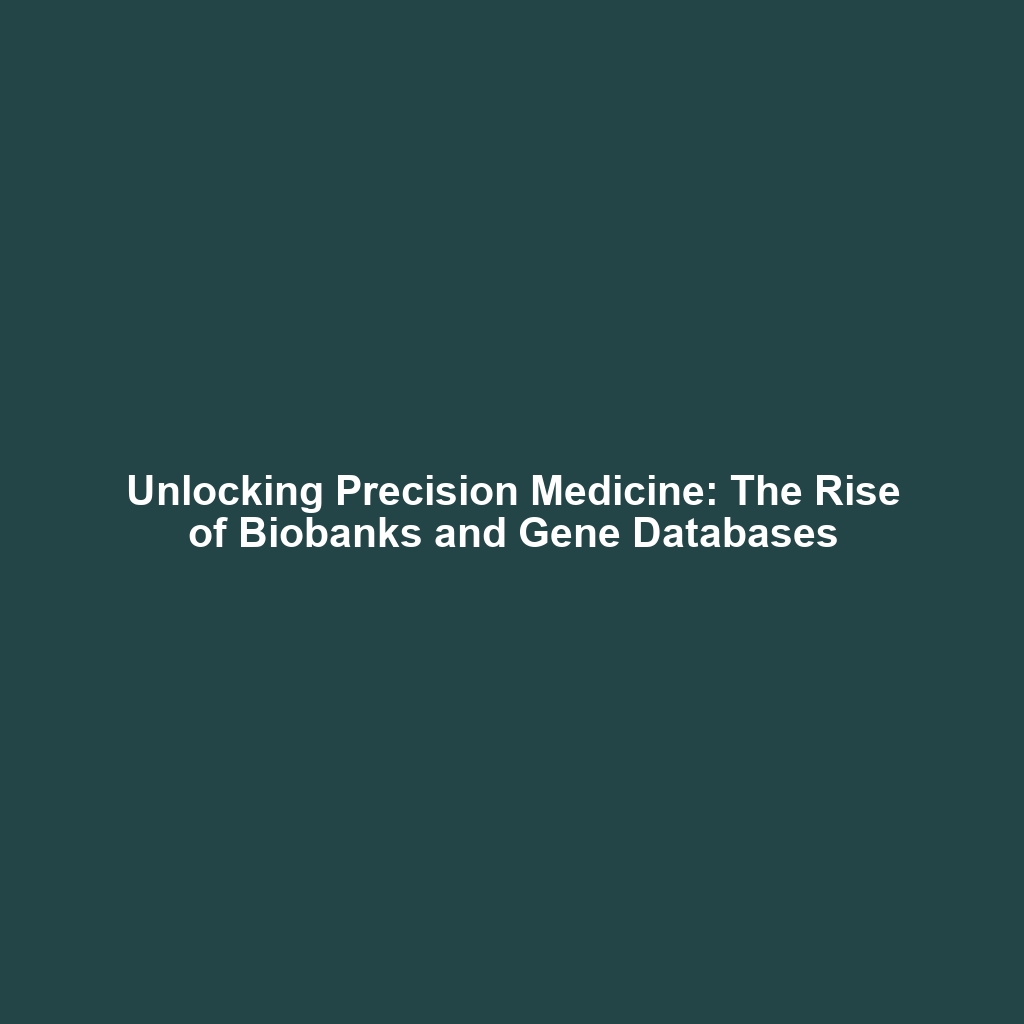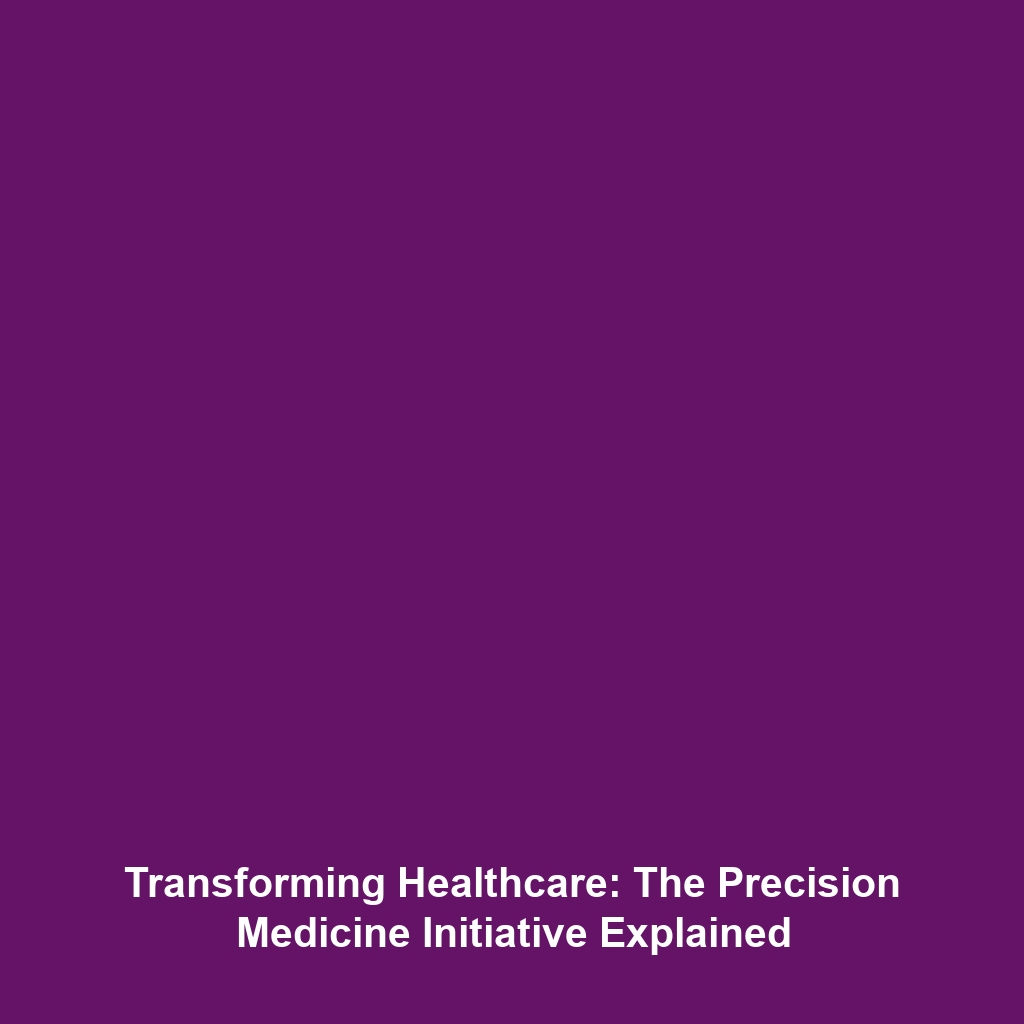The Creation of Large Genetic Databases and Biobanks: Supporting Precision Medicine
Introduction
The development of large genetic databases and biobanks, exemplified by programs like the All of Us Research Program, represents a pivotal advancement in the field of precision medicine. These initiatives stem from the groundbreaking Human Genome Project, which unveiled the complexities of human genetics. By collecting and analyzing vast amounts of genetic information, researchers aim to personalize healthcare treatments, improving outcomes and fostering a deeper understanding of genetic diseases. This article delves into the significance of these databases and their implications for the future of medicine.
Key Concepts
Understanding the creation of large genetic databases and biobanks involves several key principles:
1. Definition and Purpose
These databases serve as extensive repositories of genetic information, which can be used for research aimed at tailoring medical interventions to individual genetic profiles. Their ultimate goal is to enhance the efficacy and safety of medical treatments.
2. Historical Context
The Human Genome Project, completed in 2003, laid the foundation for this endeavor by mapping the entire human genome. Its findings enable current research programs like All of Us to thrive.
3. Inclusion and Diversity
Significant emphasis is placed on building databases that represent diverse populations, which is crucial for ensuring that precision medicine benefits all demographic groups.
Applications and Real-World Uses
The creation of large genetic databases and biobanks, such as the All of Us Research Program, leads to numerous applications in precision medicine:
- Personalized Drug Therapy: By analyzing genetic information, healthcare providers can prescribe medications that are more effective for certain genetic profiles.
- Preventive Measures: Genetic databases help identify individuals at higher risk for certain diseases, allowing for early interventions.
- Research Advancements: Researchers can utilize these databases to explore associations between genetic variations and health conditions, paving the way for innovative treatments.
Current Challenges
Despite their potential, studying or applying large genetic databases like the All of Us program faces several challenges:
- Data Privacy Concerns: Protecting the confidentiality of individuals’ genetic information is paramount.
- Standardization Issues: Variability in data collection and processing methods can hinder research consistency.
- Funding and Resources: Securing adequate funding to maintain and expand these programs remains a significant hurdle.
Future Research and Innovations
Looking ahead, several innovations are poised to improve the effectiveness of genetic databases and biobanks:
- Advanced Genome Editing: Technologies such as CRISPR may facilitate new methodologies for understanding genetic disorders.
- Artificial Intelligence: AI-driven analysis could allow for more precise interpretations of genetic data.
- Real-Time Data Integration: Future systems might allow for immediate updates and applications of genetic data in clinical settings.
Conclusion
In summary, the creation of large genetic databases and biobanks, such as the All of Us Research Program, plays a crucial role in advancing precision medicine, building on the achievements of the Human Genome Project. As research continues to evolve, these resources will be instrumental in tailoring healthcare to individual needs. To learn more about the intersection of genomics and medicine, visit our related articles.

